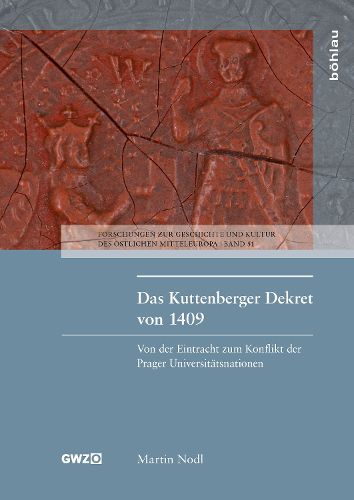Readings Newsletter
Become a Readings Member to make your shopping experience even easier.
Sign in or sign up for free!
You’re not far away from qualifying for FREE standard shipping within Australia
You’ve qualified for FREE standard shipping within Australia
The cart is loading…






In the Kuttenberg Decree, King Wenceslaus IV, contrary to the Prague university constitution, gave the three German-speaking university nations only one vote in the university assembly, while the Czech nation received three. Since the middle of the 19th century, national historiography has therefore stylized this decree as a climax of constant tensions between Germans and Bohemians, to which they attribute the German-Czech differences of the 19th and 20th centuries. Century could project back. In his analysis, however, the author proves that the relationship between the Prague university nations was characterized by efforts to achieve unity until the beginning of the 15th century. He also deals with the causes and consequences of the decree and the gradual intrusion of national aspects into the philosophical-theological conflicts between the Church Reform Party and its opponents at the university. The author comes i.a. to the conclusion that the decree only superficially made the Bohemian masters the winners, but in reality led to the decline of the Prague University and to the success of the Leipzig re-establishment, for which this book also offers interesting information.
$9.00 standard shipping within Australia
FREE standard shipping within Australia for orders over $100.00
Express & International shipping calculated at checkout
In the Kuttenberg Decree, King Wenceslaus IV, contrary to the Prague university constitution, gave the three German-speaking university nations only one vote in the university assembly, while the Czech nation received three. Since the middle of the 19th century, national historiography has therefore stylized this decree as a climax of constant tensions between Germans and Bohemians, to which they attribute the German-Czech differences of the 19th and 20th centuries. Century could project back. In his analysis, however, the author proves that the relationship between the Prague university nations was characterized by efforts to achieve unity until the beginning of the 15th century. He also deals with the causes and consequences of the decree and the gradual intrusion of national aspects into the philosophical-theological conflicts between the Church Reform Party and its opponents at the university. The author comes i.a. to the conclusion that the decree only superficially made the Bohemian masters the winners, but in reality led to the decline of the Prague University and to the success of the Leipzig re-establishment, for which this book also offers interesting information.